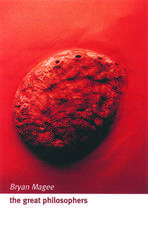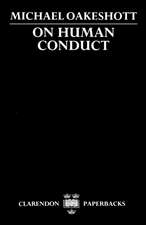Philosophical Faith and the Future of Humanity
Editat de Helmut Wautischer, Alan M. Olson, Gregory J. Waltersen Limba Engleză Paperback – 22 feb 2014
The book interrogates Jaspers’ conceptions of ‘philosophical faith’, his philosophy of communication, and the prospects for world philosophy in the future. Focusing on philosophical faith, it assesses Jaspers’ interpretations of key philosophers such as Kant, Hegel, Schelling, Kierkegaard, Nietzsche, and Rosenzweig, as well as examining his personal relationships with Bultmann and Heidegger. Contributors also look at Jaspers’ philosophies of religion and history, his hypothesis of the ‘axial age’ (Achsenzeit), and his contributions to metaphysics, periechontology, and economics. Finally, chapters cover Jaspers’ philosophy of communication and world history. The latter are informed by a burgeoning interest in Kantian ‘Freiheitphilosophie’ that influenced Jaspers, as well as concerns over the future of humanity. These concerns in part account for Jaspers’ growing popularity in the Middle East, Eastern Europe, Central/South America, and Asia. Also included are lucid clarifications of the difference between religious and philosophical faith, and the relevance ofcertainty, trust, and communication for a future of mankind.
Trained as a psychiatrist, Jaspers practiced this profession before becoming a philosopher and thus had a keen insight into the workings of the human mind even as he challenged the philosophical establishment of his time. It is perhaps this depth to his background that adds to the contemporary relevance of his work.
| Toate formatele și edițiile | Preț | Express |
|---|---|---|
| Paperback (1) | 649.06 lei 6-8 săpt. | |
| SPRINGER NETHERLANDS – 22 feb 2014 | 649.06 lei 6-8 săpt. | |
| Hardback (1) | 655.45 lei 6-8 săpt. | |
| SPRINGER NETHERLANDS – 3 ian 2012 | 655.45 lei 6-8 săpt. |
Preț: 649.06 lei
Preț vechi: 763.60 lei
-15% Nou
Puncte Express: 974
Preț estimativ în valută:
124.20€ • 132.81$ • 103.55£
124.20€ • 132.81$ • 103.55£
Carte tipărită la comandă
Livrare economică 17 aprilie-01 mai
Preluare comenzi: 021 569.72.76
Specificații
ISBN-13: 9789400797031
ISBN-10: 9400797036
Pagini: 472
Ilustrații: XVI, 456 p.
Dimensiuni: 155 x 235 x 25 mm
Greutate: 0.66 kg
Ediția:2012
Editura: SPRINGER NETHERLANDS
Colecția Springer
Locul publicării:Dordrecht, Netherlands
ISBN-10: 9400797036
Pagini: 472
Ilustrații: XVI, 456 p.
Dimensiuni: 155 x 235 x 25 mm
Greutate: 0.66 kg
Ediția:2012
Editura: SPRINGER NETHERLANDS
Colecția Springer
Locul publicării:Dordrecht, Netherlands
Public țintă
ResearchCuprins
Foreword, K. Michalski.- Part 1. Introduction, Nachlassfragment, Autobiographical, Science, and Linguistic.- Preface.- Executive Editor’s Introduction, H. Wautischer.- Foreword to Karl Jaspers’ Principles for Philosophizing, H. Saner.- Principles for Philosophizing: Introduction to Philosophical Life, 1942/43, K. Jaspers.- Philosophical Faith and the Future of Mankind, L.H. Ehrlich.- An Interview with George B. Pepper, G.B. Pepper.- Karl Jaspers: Philosophical Faith of a Scientist, N. Ghaemi.- Honoring the Messenger, S. Kirkbright.- Part 2. Philosophical Faith: Critical and Historical Analyses.- Philosophical Faith and Its Ambiguities, A.M. Olson.- Jaspers’ Concept of Philosophical Faith: A New Synthesis? A. Cesana.- Faith and Affirmation, G. Knauss.- Certainty and Trust: Reflections on Karl Jaspers’ Cosmo-Anthropology, R. Wiehl.- Three Interpretations of the Content of Jaspers’ Philosophical Faith, R. Langley.- Philosophy of Revelation: Remarks on Schelling, Jaspers, and Rosenzweig, W. Schmied-Kowarzik.- Thinking from the Origin: Critical and Personal Remarks on Jaspers’ Philosophy of Philosophizing, A. Wildermuth.- Faith, Science, and Philosophy, R. Schulz.- The Philosophy of History in Hegel, Heidegger, and Jaspers, S.A. Erickson
Jaspers’ Achsenzeit Hypothesis: A Critical Reappraisal, M. Zank.- Jaspers Meets Confucius, C. Courtney
Verstehen in Historical-Philosophical Interpretation, A.L. Gluck.- Philosophical Faith, Periechontology, and Philosophical Ethics, S. Hayashida.- Can Corporate Capitalism be Redeemed? Business Ethics and the Search for a Renewed Faith in Work, W.M. Hoffman, R.E. McNulty.- Reflections on Philosophical Faith and Faith in the Twenty-First Century, F. Peach.- Part 3. The Future of Humanity: Global Communication and the Project of World Philosophy.- Philosophical Faith & the Foundering of Truth in Time, G.J. Walters.- Toward World Philosophy and a World History of Philosophy. Karl Jaspers: His Work, Calling,and Legacy, R. Wisser.- Humanism and Wars: Karl Jaspers between Politics, Culture, and Law, C. Thornhill.- On Recovering Philosophy: Philosophical Dialogue and Political Philosophy after 9/11, T. Rockmore.- World Philosophy: On Philosophers Making Peace, A. Hügli.- Philosophical Faith as the Will to Communicate: Two Case Studies in Intercultural Understanding, T. Iwasawa.- Faith as Humanity’s Essential Communication Bridge, H-J. Seideneck.- Freedom in the Space of Nothingness, M.K. Khazaee.- Philosophical Faith: The Savior of Humanity, I. Sarin.- The Second Axial Age: Fulfilling Human Destiny, C. Piecuch.- Karl Jaspers’ Philosophical Faith for the Global Age: The Idea of Civilizational Continuity, J.M. Cho.- The Factor of Listening in Karl Jaspers’ Philosophy of Communication, K. Górniak-Kocikowska.
Jaspers’ Achsenzeit Hypothesis: A Critical Reappraisal, M. Zank.- Jaspers Meets Confucius, C. Courtney
Verstehen in Historical-Philosophical Interpretation, A.L. Gluck.- Philosophical Faith, Periechontology, and Philosophical Ethics, S. Hayashida.- Can Corporate Capitalism be Redeemed? Business Ethics and the Search for a Renewed Faith in Work, W.M. Hoffman, R.E. McNulty.- Reflections on Philosophical Faith and Faith in the Twenty-First Century, F. Peach.- Part 3. The Future of Humanity: Global Communication and the Project of World Philosophy.- Philosophical Faith & the Foundering of Truth in Time, G.J. Walters.- Toward World Philosophy and a World History of Philosophy. Karl Jaspers: His Work, Calling,and Legacy, R. Wisser.- Humanism and Wars: Karl Jaspers between Politics, Culture, and Law, C. Thornhill.- On Recovering Philosophy: Philosophical Dialogue and Political Philosophy after 9/11, T. Rockmore.- World Philosophy: On Philosophers Making Peace, A. Hügli.- Philosophical Faith as the Will to Communicate: Two Case Studies in Intercultural Understanding, T. Iwasawa.- Faith as Humanity’s Essential Communication Bridge, H-J. Seideneck.- Freedom in the Space of Nothingness, M.K. Khazaee.- Philosophical Faith: The Savior of Humanity, I. Sarin.- The Second Axial Age: Fulfilling Human Destiny, C. Piecuch.- Karl Jaspers’ Philosophical Faith for the Global Age: The Idea of Civilizational Continuity, J.M. Cho.- The Factor of Listening in Karl Jaspers’ Philosophy of Communication, K. Górniak-Kocikowska.
Textul de pe ultima copertă
Karl Jaspers, who died in 1969, had a profound impact on 20th-century theology and philosophy. His central thesis called for, among other things, a de-centering of philosophy from its Eurocentric roots and a renewal of its dialogue with other traditions, especially Asian ones. This collection of essays includes unpublished work by Jaspers himself as well as testimonies to his life and career by colleagues, associates, and translators, some of who knew Jaspers personally. Readers will also find commentary and interpretation by researchers who have explored Jaspers’ work for decades, and a biographical account of Jaspers’ student Leonard Ehrlich, who handled much of Jaspers’ English translation.
The book interrogates Jaspers’ conceptions of ‘philosophical faith’, his philosophy of communication, and the prospects for world philosophy in the future. Focusing on philosophical faith, it assesses Jaspers’ interpretations of key philosophers such as Kant, Hegel, Schelling, Kierkegaard, Nietzsche, and Rosenzweig, as well as examining his personal relationships with Bultmann and Heidegger. Contributors also look at Jaspers’ philosophies of religion and history, his hypothesis of the ‘axial age’ (Achsenzeit), and his contributions to metaphysics, periechontology, and economics. Finally, chapters cover Jaspers’ philosophy of communication and world history. The latter are informed by a burgeoning interest in Kantian ‘Freiheitphilosophie’ that influenced Jaspers, as well as concerns over the future of humanity. These concerns in part account for Jaspers’ growing popularity in the Middle East, Eastern Europe, Central/South America, and Asia. Also included are lucid clarifications of the difference between religious and philosophical faith, and the relevance of certainty, trust, and communication for a future of mankind.
Trained as a psychiatrist,Jaspers practiced this profession before becoming a philosopher and thus had a keen insight into the workings of the human mind even as he challenged the philosophical establishment of his time. It is perhaps this depth to his background that adds to the contemporary relevance of his work.
The book interrogates Jaspers’ conceptions of ‘philosophical faith’, his philosophy of communication, and the prospects for world philosophy in the future. Focusing on philosophical faith, it assesses Jaspers’ interpretations of key philosophers such as Kant, Hegel, Schelling, Kierkegaard, Nietzsche, and Rosenzweig, as well as examining his personal relationships with Bultmann and Heidegger. Contributors also look at Jaspers’ philosophies of religion and history, his hypothesis of the ‘axial age’ (Achsenzeit), and his contributions to metaphysics, periechontology, and economics. Finally, chapters cover Jaspers’ philosophy of communication and world history. The latter are informed by a burgeoning interest in Kantian ‘Freiheitphilosophie’ that influenced Jaspers, as well as concerns over the future of humanity. These concerns in part account for Jaspers’ growing popularity in the Middle East, Eastern Europe, Central/South America, and Asia. Also included are lucid clarifications of the difference between religious and philosophical faith, and the relevance of certainty, trust, and communication for a future of mankind.
Trained as a psychiatrist,Jaspers practiced this profession before becoming a philosopher and thus had a keen insight into the workings of the human mind even as he challenged the philosophical establishment of his time. It is perhaps this depth to his background that adds to the contemporary relevance of his work.
Caracteristici
Offers original unpublished and now translated work by Jaspers that outlines his principles of philosophy Contains philosophical autobiography of Leonard Ehrlich, a student of Jaspers and the principal translator of many of Jaspers’ works into English Provides an interdisciplinary account of the future of humanity presented by leading scholars on the basis of Jaspers scholarship

















